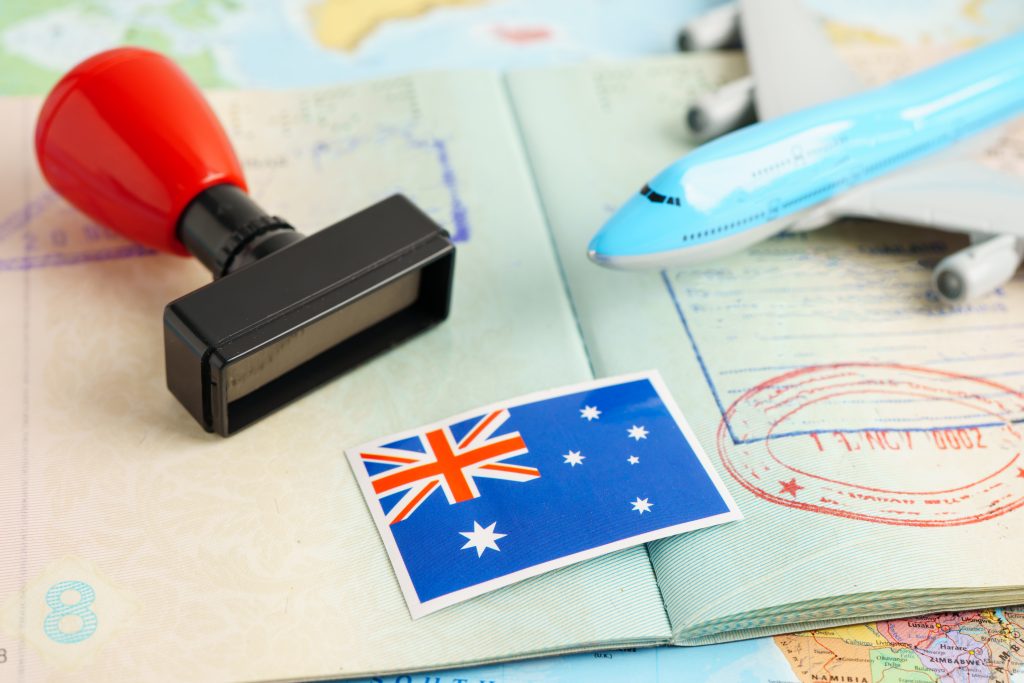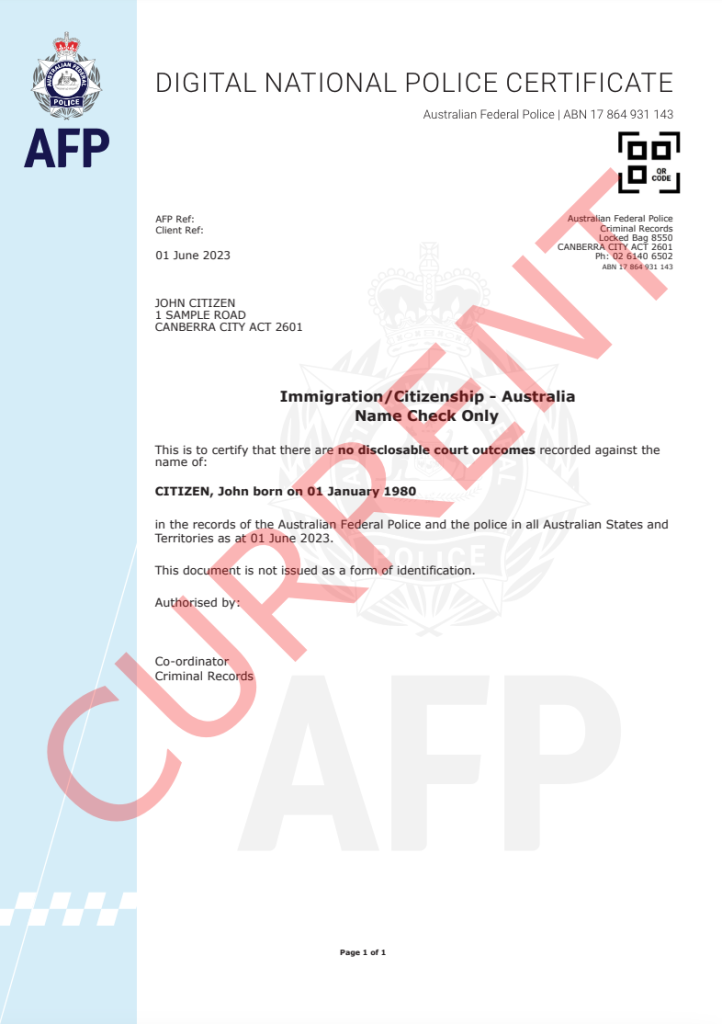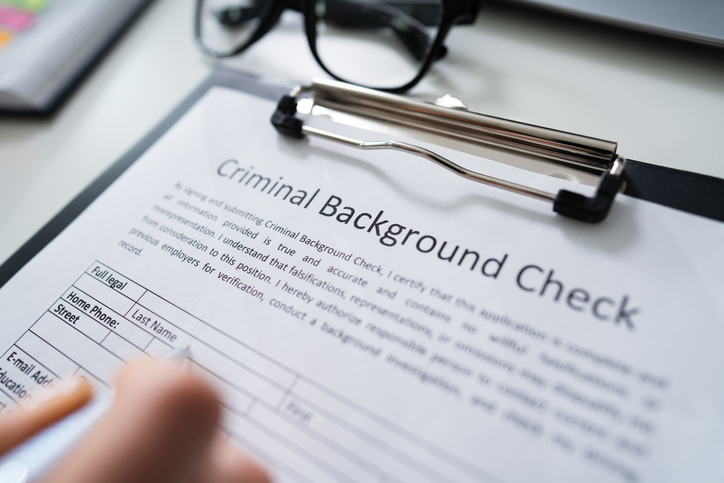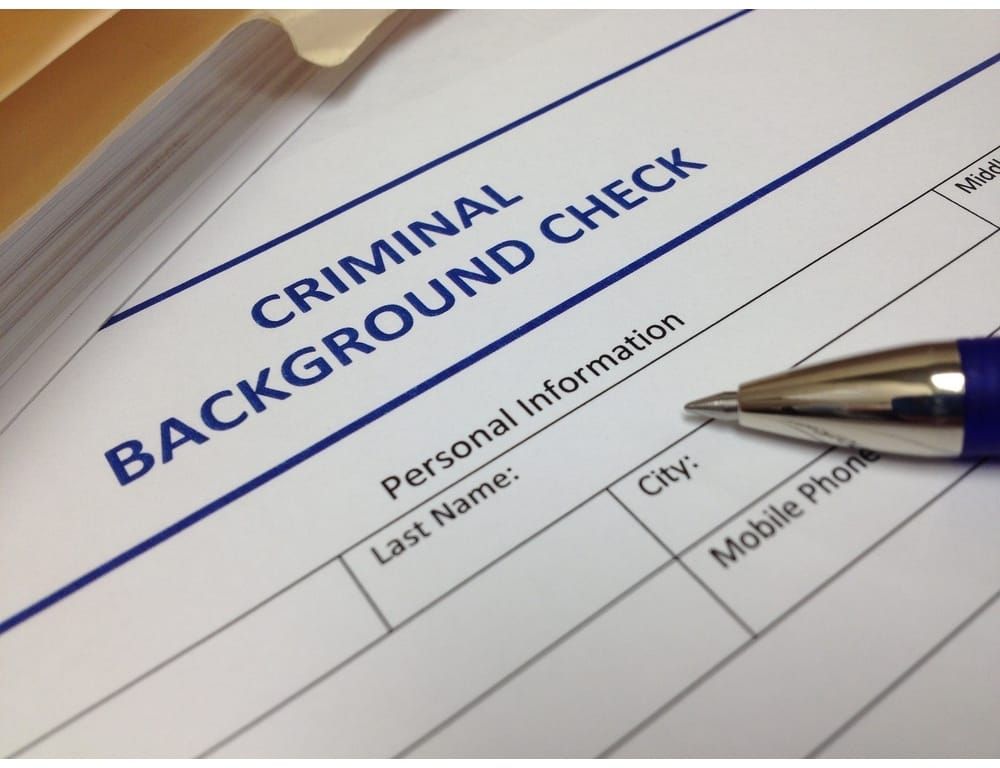Whether you’re applying for a new job, volunteering with children, pursuing Australian citizenship, or sponsoring a family member’s visa, you’ll likely encounter the requirement for a police check at some point during your time in Australia. For many in the Balkan community, navigating Australia’s various police check requirements while managing overseas documentation can feel overwhelming, especially when language barriers and complex bureaucracy are involved.
A police check, also known as a criminal history check or police clearance certificate, is an official document that shows your criminal history (or lack thereof) in Australia or your country of origin. These checks are essential safeguards used by employers, government agencies, and other organisations to assess an individual’s character and suitability for specific roles, visas, or responsibilities.
For many in the Balkan community, obtaining and translating these documents correctly is a crucial step toward building a new life in Australia. Whether you need a Serbian police check translated for your citizenship application or an Australian police check for employment, understanding the requirements can save you time, money, and unnecessary stress.

Types of Police Checks in Australia
Australia’s police check system is structured around two main categories that serve different purposes and are administered by different agencies. Understanding which type you need is crucial for your application success.
Nationally Coordinated Criminal History Check (NCCHC)
From 1st January 2025, the check previously referred to broadly as a National Police Check is now officially named Nationally Coordinated Criminal History Check or NCCHC. This is the most commonly required police check for general purposes and is delivered through the National Police Checking Service (NPCS) operated by the Australian Criminal Intelligence Commission (ACIC).
Standard NCCHC (Name Only Check): This is the most common type, where your identity is verified using personal details and identity documents.
What it covers:
- All Disclosable Court Outcomes (DCOs) from across Australia
- Criminal convictions from all Australian jurisdictions
- All pending charges and traffic charges that led to convictions
- Court outcomes and penalties
Common uses:
- Employment screening (education, healthcare, finance, government)
- Volunteer work with children or vulnerable people
- Professional licensing and registrations
- General background checks for organizations
Volunteer NCCHC (VNCCHC): Volunteer National Police Checks are correctly known as a Volunteer Nationally Coordinated Criminal History Check or VNCCHC and are often provided free or at reduced cost for genuine volunteer positions.
○ Handy Tip: NCCHC results can be returned in as little as 24 hours for standard name-only checks when applied through accredited agencies online.
Australian Federal Police (AFP) Checks
AFP checks are administered directly by the Australian Federal Police for specific federal purposes, international requirements, or when enhanced security screening is needed.
AFP National Police Certificate (NPC): This is processed directly by the AFP and may be required for specific federal government positions, international purposes, or when requested by particular agencies. For visa and immigration applications, the Department of Home Affairs typically requires AFP National Police Certificates rather than standard NCCHC checks, making this the correct choice for most migration purposes.
Applications can be submitted online through the AFP website here. AFP checks require identity documents totaling a minimum of 100 points under Australia’s identity verification system, with acceptable documents including Australian passports, driver’s licenses, birth certificates, and other government-issued identification.
○ Handy Tip: If you’re applying for an Australian visa or citizenship, always check the specific requirements with the Department of Home Affairs or your migration agent, as they usually specify AFP checks rather than general NCCHC checks.
Name with Fingerprint Check: Required when:
- Standard name-only checks return incomplete results
- Enhanced identity verification is needed
- Specific federal employment or security clearances require it
- International visa applications request fingerprint-based checks
- Sometimes required as part of an AFP NPC application
Name with ASIO Security Assessment: This specialized check includes security assessment by the Australian Security Intelligence Organisation (ASIO) and is required for high-level security clearances, sensitive government positions, and industries handling hazardous materials or critical infrastructure.

International Police Checks
For migrants and recent arrivals, international police checks from your country of birth or residence are often required alongside Australian checks.
Key requirements for international police checks:
- Must be recent (typically within 12 months, but requirements vary)
- Must be officially authenticated (often requiring Apostille certification)
- Must be translated into English by a NAATI-certified translator
- Original documents or certified copies usually required
Why International Police Checks Matter: For visa applications, citizenship, and many employment opportunities, you’ll need police checks from every country where you’ve lived for 12+ months since turning 16. All foreign police checks must be translated by NAATI-certified translators to be accepted by Australian authorities.
At Balkan Translations, we provide NAATI translation services for police checks from all countries in our service area:
- Albania: Dëshmi penaliteti
- Bosnia and Herzegovina: Uvjerenje o nekažnjavanju/Uvjerenje da se ne vodi krivični postupak
- Bulgaria: Свидетелство за съдимост
- Croatia: Potvrda iz kaznene evidencije/Uvjerenje da se ne vodi kazneni ili prekršajni postupak
- Cyprus: Πιστοποιητικά Λευκού Ποινικού Μητρώου
- Greece: Ποινικό Μητρώο
- Hungary: Hatósági erkölcsi bizonyítvány
- Kosovo: Certifikata mbi Dënimet Penale
- Macedonia: Потврда од казнена евиденција/Уверение од кривична евиденција
- Montenegro: Uvjerenje iz kaznene evidencije/Uvjerenje da se protiv lica ne vodi krivični postupak
- Romania: Certificat de cazier judiciar
- Serbia: Уверење из казнене евиденције/Уверење о (не)кажњавању
- Slovenia: Izpis iz kazenske evidence (potrdila o nekaznovanosti)
- Turkey: Adli Sicil Kaydı
○ Handy Tip: Many countries now offer online applications for police checks through their respective interior ministries. However, processing times can vary significantly, so apply well in advance of your deadlines.
When You Need a Police Check
You might need a national police check for things such as recruitment and job applications, volunteer and not-for-profit positions, working with children or vulnerable groups, licensing or registration scheme applications, work-related checks due to legislation or regulations, Australian citizenship and permanent residence applications, visa applications for some countries, and working overseas.
Employment Screening
Many Australian employers require police checks, particularly in industries involving:
High-risk sectors:
- Education (teachers, support staff, contractors working in schools)
- Healthcare (nurses, doctors, aged care workers)
- Financial services (banking, accounting, insurance)
- Government positions (federal, state, and local government roles)
- Transportation (taxi drivers, rideshare operators, commercial drivers)
- Security services (security guards, private investigators)
Working with vulnerable populations:
- Child care centres and family day care
- Aged care facilities
- Disability support services
- Youth organisations and sports clubs
Volunteer Work
Australia takes the protection of vulnerable community members seriously, requiring police checks for most volunteer positions involving:
- Working with children under 18
- Supporting elderly or disabled individuals
- Handling money or sensitive information
- Representing organisations in official capacities
Visa Applications and Citizenship
This is where many Balkan community members encounter police check requirements most frequently:
Australian visa applications requiring police checks:
- Partner and spouse visas (subclasses 820/801, 309/100)
- Parent visas (subclasses 103, 143, 173)
- Skilled migration visas (subclasses 189, 190, 491)
- Business and investor visas
- Student visas (in some circumstances)
- Visitor visas (for certain countries or extended stays)
Australian citizenship applications:
- All applicants aged 16 and over must provide police checks
- Both Australian and overseas checks may be required
- Checks must be recent and properly translated
Professional Licensing, Adoption and Other Specialized Requirements
Beyond employment and immigration, police checks are mandatory for various professional and personal circumstances:
Professional licensing and registrations:
- Real estate agents and property managers
- Financial advisors and mortgage brokers
- Medical practitioners and allied health professionals
- Legal practitioners
- Working with children checks for specific professions
Adoption and fostering: Prospective adoptive parents and foster carers must undergo comprehensive background screening, including detailed police checks from all countries where they’ve resided.

How to Apply for a Police Check
The application process varies depending on the type of check you need, but most National Police Checks can be completed online through the AFP website or accredited agencies.
AFP National Police Certificate Application
For immigration, visa, and federal purposes, apply directly through the AFP:
Step 1: Access the AFP Website – Visit the AFP National Police Checks page and choose your check type:
- Standard AFP National Police Certificate
- Fingerprint check (required for security guard licensing, certain visa applications as specified by migration agents, or when standard name-based checks return incomplete results)
Note: If fingerprints are required, your application will need to be processed through the post.
Step 2: Complete the Online Application Form – If no fingerprints are needed, proceed with the online application form.
Step 3: Identity Verification (100-point check required) – Provide identity documents according to the AFP 100-point identity checklist.
Postal Application Process
If you prefer to apply by post or require a fingerprint check, you can use the offline application form.
When completing the form, remember:
- Use black ink
- Mark boxes with a cross (X)
- Use capital letters
- Check all details are correct
- Sign and date the form
○ Handy Tip: You cannot lodge postal applications at local police stations – they must be mailed directly to the AFP address.
NCCHC Application (For Employment and General Purposes)
NCCHC checks cannot be applied for directly through ACIC and must be processed through accredited agencies.
Application process:
- Complete online application through chosen accredited agency
- Provide identity verification (requirements vary by agency)
- Pay applicable fees
- Processing: Often 24-48 hours for standard checks
Volunteer checks (VNCCHC): Many accredited agencies offer free or discounted volunteer checks for genuine volunteer positions.
○ Handy Tip: Always verify that your chosen agency is ACIC-accredited by checking the official ACIC website here.
Translation Requirements for Foreign Police Checks
The Department of Home Affairs requires NAATI-certified translations for all official documents, making professional translation an absolute requirement, not an optional extra.
Why NAATI Certification is Mandatory
The National Accreditation Authority for Translators and Interpreters (NAATI) is Australia’s official translation certification body. A police clearance translation needs to be carried out in Australia by a translator who has NAATI accreditation.
At Balkan Translations, we guarantee all translations are handled by NAATI-certified translators who meet these stringent requirements.
Government requirements:
- All Australian government agencies require NAATI certification
- Immigration applications are automatically rejected without proper certification
- Courts and legal processes only accept NAATI-certified translations
- Professional licensing bodies require NAATI certification
Quality assurance:
- NAATI-certified translators undergo rigorous testing and assessment
- Ongoing professional development requirements
- Accountability through professional standards and codes of ethics
- Insurance coverage for professional services
○ Handy Tip: Always verify your translator’s NAATI certification is current by checking their credentials on the official NAATI website. This simple step can prevent costly delays and rejections.
Why Choose Balkan Translations for Your Police Check Translation Needs
At Balkan Translations, we specialise in NAATI-certified translations for police checks and other official documents from Balkan countries. Our services include:
Language expertise: Our NAATI-certified translators are native speakers of:
- Albanian
- Bosnian
- Bulgarian
- Croatian
- Greek
- Hungarian
- Macedonian
- Montenegrin
- Romanian
- Serbian
- Slovenian
- Turkish
Cultural understanding: Beyond language skills, our translators understand the cultural and administrative contexts of Balkan documentation, ensuring accurate translation of:
- Historical terminology from former Yugoslavia
- Regional variations in language and administration
- Country-specific legal and administrative terms
- Cultural concepts that don’t directly translate
Quality assurance: Every translation includes:
- NAATI certification number and translator credentials
- Official translator stamp and signature
- Accuracy declaration
- Contact information for verification purposes
We speak your language! Μιλάμε Ελληνικά! Зборуваме македонски! Govorimo hrvatski! Говоримо српски! Govorimo bosanski! Türkçe konuşuyoruz! Beszélünk magyarul! Vorbim românește! Говорим български! Govorimo slovensko! Govorimo crnogorski! Ne flasim shqip!
Ready to get your police check professionally translated? Contact us today for expert NAATI-certified translation services that meet all Australian government requirements.
Conclusion
Obtaining police checks in Australia involves navigating a complex system of requirements, timelines, and documentation standards. For members of the Balkan community and other migrants, the process becomes even more intricate when international police checks and professional translations are required.
The key to success lies in understanding that police checks are not just bureaucratic formalities—they’re critical character assessments that can determine the outcome of your visa application, employment opportunity, or citizenship journey. Whether you’re applying for your first Australian job, bringing family members to Australia, or taking the final steps toward Australian citizenship, properly prepared police checks demonstrate your commitment to transparency and compliance with Australian standards.
Most importantly, never underestimate the significance of professional translation services for your international documents. Ensuring proper certification and translation of your police check documents is crucial for meeting Australian immigration requirements. What might seem like a simple translation task can become the difference between application success and costly delays.
The investment in professional NAATI-certified translations and proper document preparation pays dividends through faster processing, reduced stress, and successful outcomes. When you consider the time, money, and emotional energy involved in visa applications, employment opportunities, or citizenship processes, professional translation services represent a small but crucial investment in your future.
Please note that we are not Migration Agents, nor do we provide migration advice. We recommend consulting with a qualified migration agent or the Department of Home Affairs for specific guidance regarding your individual police check and visa requirements.



